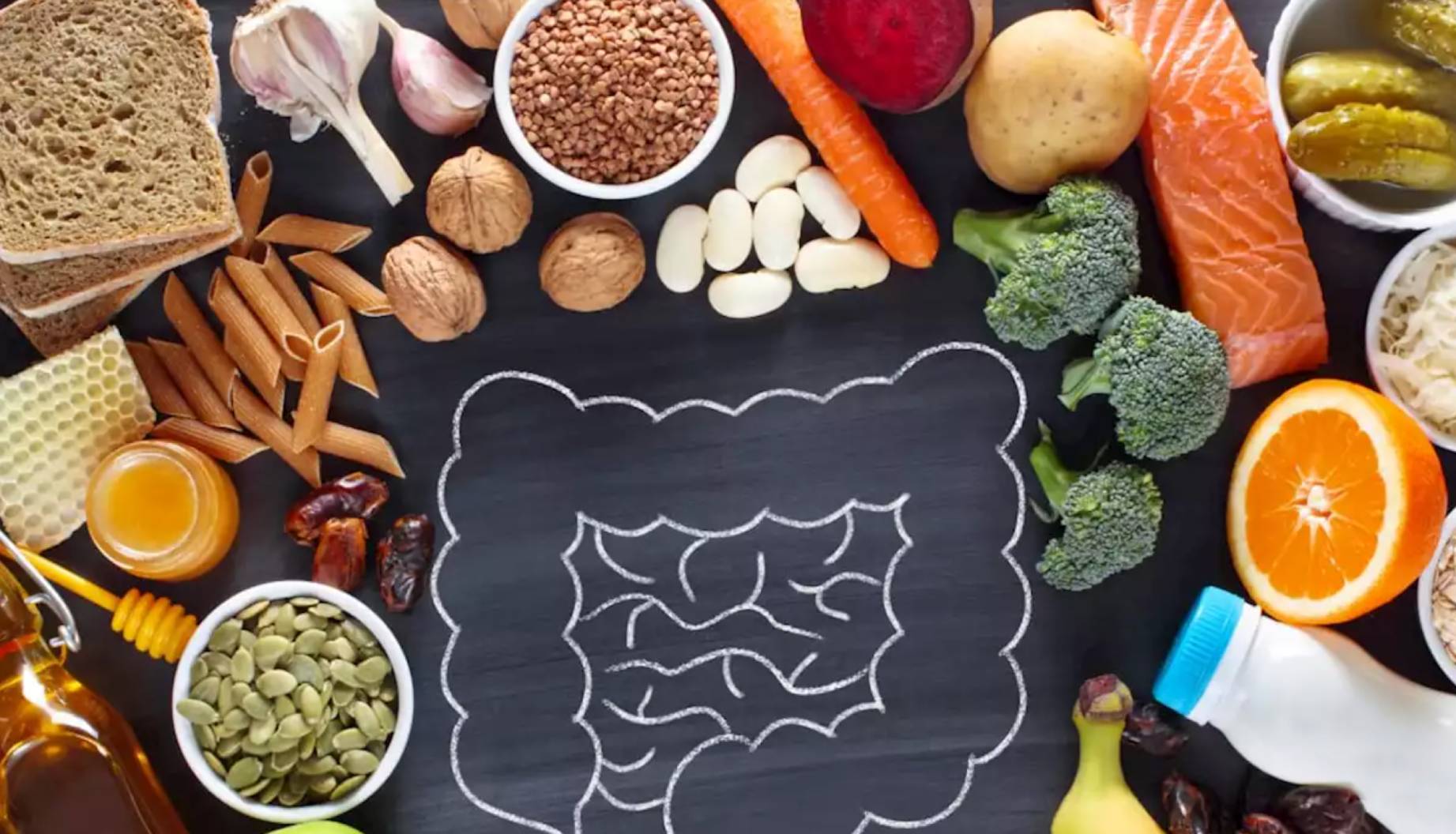There is no overnight shortcut to better digestive health, regardless of what social media might lead you to believe.
TikTok floods with hundreds of videos offering tips and tricks for “hacking” your gut every few months. Aloe vera juice was promoted by influencers in March: “My digestive system, like my gut health?” “Never been better,” one gushed in a video with one million likes. In a video viewed more than 3.5 million times, “oliveoilqueen” advocated drinking extra virgin olive oil daily, claiming it cleared her skin, made her periods less painful, and fixed her frequent bloating. There have been nearly 400 million views of videos tagged with #guttok. You’ll find suggestions for cucumber-ginger juices and boiled apples, bone broth in the morning and sweet potato soup at night.
It’s not clear whether any of these supposed fixes improve digestion, gastrointestinal experts said. Coconut oil, for instance, has a high fat content that can loosen stool and irritate your stomach, said Beth Czerwony, a dietitian at Cleveland Clinic. Aloe vera juice, for example, may cause diarrhea in some people. Since the Food and Drug Administration does not regulate supplements, gastroenterologists are reluctant to recommend pills, powders, and products promoted by influencers.
Whenever someone claims to have something that will immediately cure gut disease, you should be skeptical, said Justin Sonnenburg, a Stanford professor of microbiology and immunology. His research points to long-term lifestyle habits that can benefit the gut – ones that rarely go viral or gain social media acclaim.

Table of Contents
How gut health went mainstream
Stephanie Alice Baker, a senior lecturer in sociology at the City, University of London who studies online wellness culture, said gut health is one example of self-transformation content. “What you see is a trend of self-optimization,” Doctor said. Most #guttok videos feature before and after pictures – bloating under a crop top becomes toned abs. It might be more appealing to an influencer’s audience to frame these changes around a topic such as gut health than diet or weight loss, she said.
As well as being intimate, talking about the gut engenders a sense of belonging, Baker claimed. The topic of bowel movements is as personal as it gets – and authenticity attracts an audience.
Gut health refers to that, said Doctor, a gastroenterologist at NYU Langone Health. “They want to stamp a pretty name on it, but it’s really about pooping.”
How do you know if you have poor gut health?
In the past few decades, gut-related health conditions, including irritable bowel syndrome, have surged, according to Doctor, attributed to the rise of processed and packaged foods. According to a global survey of over 73,000 adults from 33 countries, more than 40 percent of respondents suffer from gastrointestinal disorders, such as constipation or irritable bowel syndrome.
Experts say chronic, unexplained abdominal pain, constipation, and diarrhea are all signs of poor gut health. The feeling of being sluggish, or “blah,” may also occur.
You want your stool to be soft, smooth, and sausage-shaped if you’re concerned about your gut, Doctor said. In order to determine the health of your stool, you can use the Bristol Stool Chart, a medical classification of seven types of poop.
Doctors say gut health can have long-term health consequences. Research is examining the relationship between gut flora and neurological disorders like Parkinson’s disease, said Doctor, an assistant professor at Johns Hopkins Medicine.
She added that people experiencing gastrointestinal problems like abdominal pain or chronic diarrhea should consult a physician if they are experiencing these symptoms.
What can you do to improve your gut health?
Eat more fiber
Fiber comes in two forms: soluble fiber (the gummy fibers we get from foods like oatmeal and apple skins) and insoluble fiber (the laxative fiber that helps push food through the digestive system). Insoluble fiber can be found in nuts, whole grains, beans, and legumes, according to Ms. Czerwony.
Be careful not to introduce too much fiber too quickly. Experts recommend gradually increasing the amount of fiber-rich foods you add to your meals over a period of weeks when making dietary changes.
Limit processed foods
Artificial sweeteners, found in many processed foods, can lead to unhealthy gut microbes, according to doctors who help packaged foods stay shelf-stable can erode the mucus barrier in your gut. Simple sugars and starches can be converted to gas by bacteria in the gut, causing bloating. Fast foods and processed foods – which the Doctor defines as foods containing ingredients you wouldn’t recognize as food, such as additives – can contribute to poor gut health. Nonetheless, he said, your gut microbiome is fairly resilient; the occasional ice cream binge or gas-station snack won’t wreck your system.
Opt for fermented foods
According to doctor, fermented foods such as yogurt, kimchi, kefir, sauerkraut and kombucha can increase the diversity of bacteria in the gut. Those who consumed six servings of fermented foods a day saw these benefits, the equivalent of one cup of yogurt, one 16-ounce bottle of kombucha and one cup of kimchi.
In the past, research has linked a diverse gut microbiome to a lower risk of obesity, diabetes, and other health problems.
Lower your stress levels
Ms. Czerwony said there’s a strong connection between the gut and the brain. If you’re stressed or not sleeping well, you might have gastrointestinal symptoms and think it’s because of your diet. “It could be due to your lifestyle,” she said. Gut health is also linked to adequate sleep, hydration, and exercise.
Digestion can be improved with even a small amount of physical activity. “Walk if you’re feeling sluggish and bloated,” she recommended.

